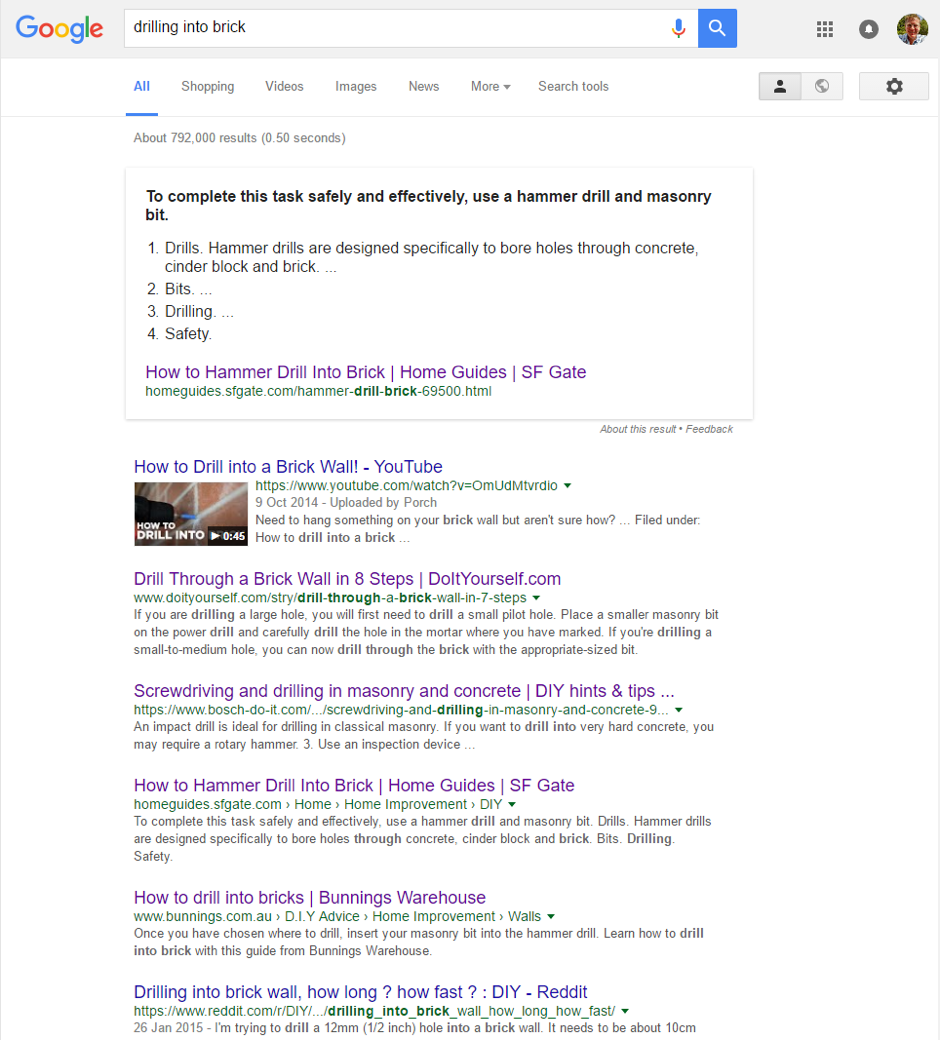22nd Sep 2016

22nd Sep 2016
Google has always aimed to give its search users the best possible experience. Its success with this is why it's become so dominant in the search industry. To deliver the best experience for users it has always provided a stripped-bare search page that loads almost instantly (which, compared with Yahoo! and AOL back when we were using dial-up modems, made a huge difference to visitors), and search algorithms that go deeply into predicting what a user *actually* wants rather than literally what they type into the box.
Most users searching the web want to solve a problem or answer a question. Google has become amazing at putting the most helpful information right in front of us, at the top of the search results in an easy-to-use way. That's why it's successful.
So, the pages that make it to the top of the results are usually the ones that help us the most. If you're searching for general knowledge facts then wikipedia.com is almost always near the top. If I'm Googling for answers to obscure coding questions then stackoverflow.com is up there. When I have an issue with my car then forums full of solutions are often easy to find. The reason is that Google understands the value of these resources because they're factual, wordy rather than media-heavy, user-generated, and persistent. These kinds of websites are just helpful. They don't push their own agenda or try to sell anything.
To compete with the helpful websites, your own content should be equally (or ideally more!) helpful. It should answer visitors' questions. It should provide impartial advice about the things your users want to know. It should be childishly easy to use. After you've covered all those things then you can start to sell your stuff.
When people need an answer to a complex problem they will often go through a sequence of questions in their mind, starting with general questions and becoming more and more specific as their detailed knowledge increases.
Say someone wants to buy and fit a garden gate. They buy the gate and some hinges and a handle. With everything ready in a pile in the garden they'll face the problem of attaching the hinges to their garage wall. (Ask me how I know.) At this stage they haven't even started to consider whether they want a Bosch or Makita drill and whether they'll go to Screwfix or Wickes to buy it. Those are the detailed questions that come later. They just want help understanding how to solve the problem.
So our hapless hero will go to Google and search for "drilling into brick". At the top of the results for me are a bunch of how-to guides from informational websites: doityourself.com, reddit.com, homeguides.sfgate.com, youtube.com and so on. These sites are just being helpful. They're not trying to sell me drill bits or Rawlplugs. I trust them. So far so good.

But among those helpful results is a page from bunnings.com.au, which looks like an Australian B&Q. Their page has a neat video from a talking beard called Aaron who answers my question but then goes on to offer to sell me all the things I need for the task. How helpful!
So Bunnings managed to get their products in front of me despite me using a very general search term, and they did it by making a helpful video and designing a page that captured my search right at the early stages of my problem-solving. To do this they thought about their website's users, the problems we face, and how they can solve those problems with their ranges of products. Other retailers might optimise their pages for product-specific search terms like "SDS drills" or "masonry drill bits", but they can all fight with each other for that difficult-to-win traffic. Bunnings wins this time.